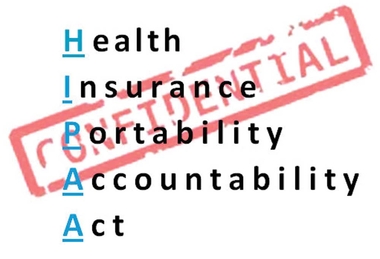LGBT Health: Healthcare Privacy

by Sally Gilbert
Legal Columnist
As adults, we have the right to make our own medical decisions – given we are not incapacitated. We also have exclusive access to our medical records. The federal Health Insurance Portability and Accountability Act of 1996 (HIPAA), denies all others access to our healthcare information except in limited situations.
If we become incapacitated, however, someone will need to communicate with our healthcare providers and make medical decisions for us. This is why everyone needs an Advance Directive for Health Care. There is an Oklahoma standardized form available at the Oklahoma Bar Association website. The form allows us to name a healthcare proxy to see records and talk to our doctors and nurses. I always recommend naming at least one back up in case your first choice is unavailable. It should be someone you trust to carry out your wishes.
The Advance Directive also calls for us to decide what life-sustaining treatments we want. Signing the form doesn’t mean that you cannot make your own decisions. Your Advance Directive takes effect only if two doctors decide that you cannot make your own medical decisions and that you have a terminal condition, you are persistently unconscious, or have an end-stage condition.
Your designated proxy cannot override your advance end-of-life choices. The form also allows you to decide whether you want to make an organ donation. An Advance Directive is especially important to those who are single. Otherwise, the law will defer to your biological relatives – parents, siblings, etc. – to take over our medical decision-making.
In Oklahoma, parents have full access to a child’s medical information until the child turns 18. Parents also have the right to decide which doctors to see and what treatment they give. Teenagers often do not get medical attention or at least put it off because they do not want their parents to know about their addiction, that they want contraceptives or need HIV, STD or pregnancy testing.
Federal law leaves it up to the states to decide the extent of the parents’ authority in these matters. Minors in Oklahoma can consent on their own to have STD, including HIV, testing. Minors who are married, have a dependent child of their own or are emancipated do not need parental consent for any testing or treatment. (Emancipation is a ruling by a court that a minor can make decisions on his or her own due to circumstances and maturity.) The rule is usually that if a minor can decide on his or her own, providers are not required to report to the parents.
On the other hand, there is nothing in Oklahoma law preventing a provider from sharing a minor patient’s confidential information with a parent, unless the testing or evaluation was normal. Minors should find out in advance whether the doctor will agree to keep the information confidential.
A pregnant minor can get court authorization to have an abortion in certain circumstances without parental notification. There are hurry-up procedures to allow for a quick decision. The woman can also quickly appeal. This is important since a particular judge’s ideology might influence the decision.
The Gayly- 3/31/2016 @ 10:10 AM CDT





